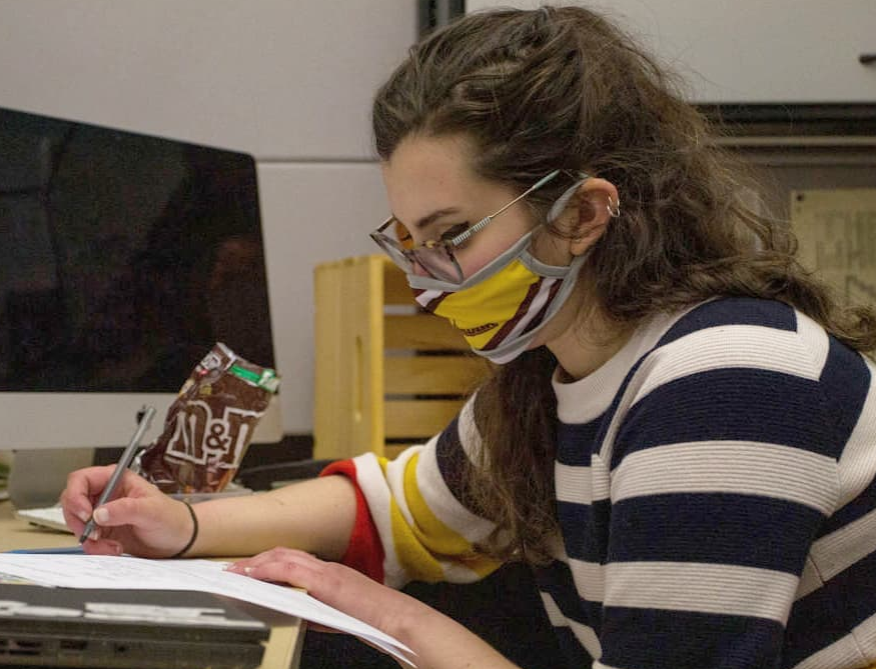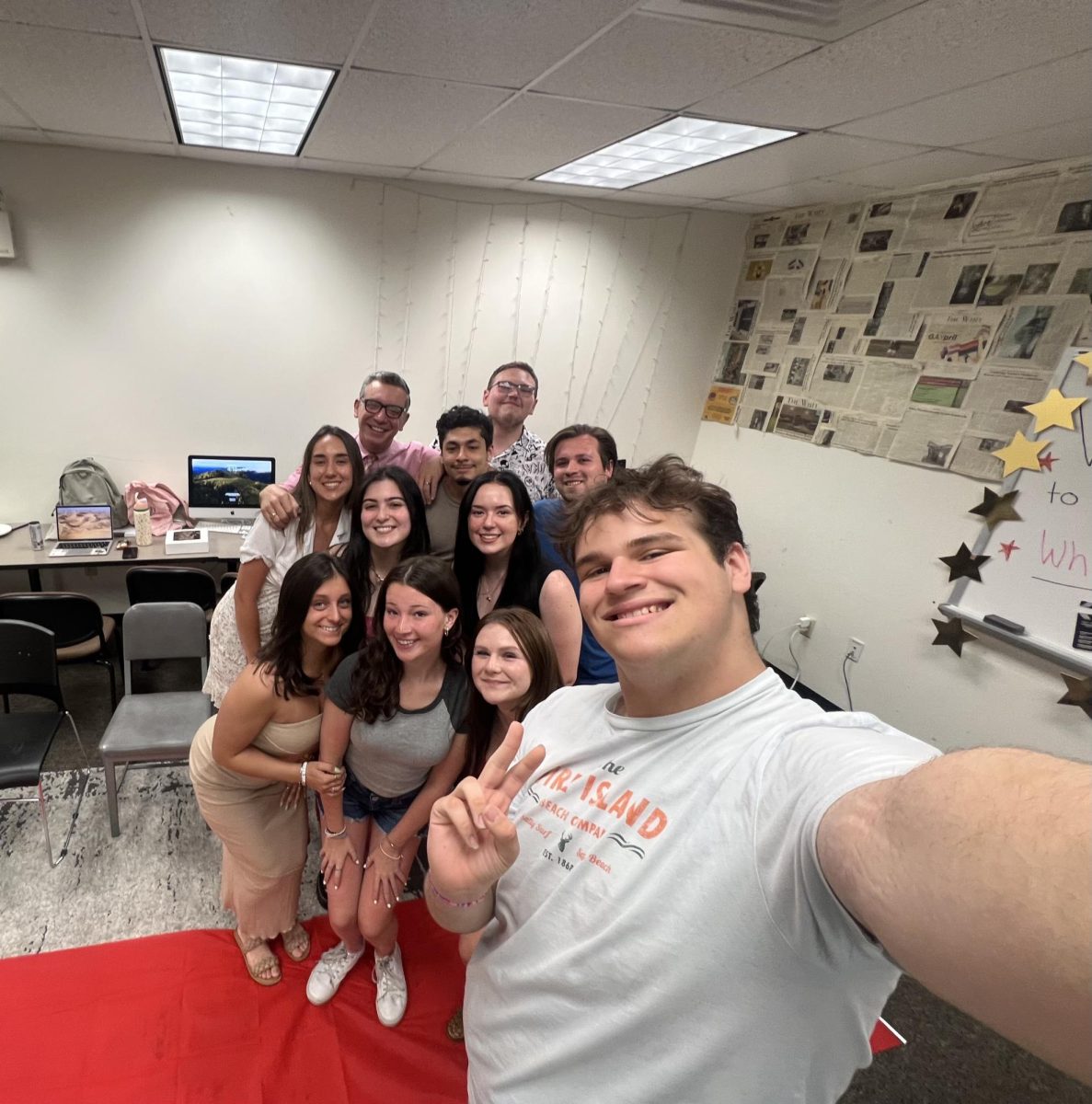One of my first conflicts as a Whit editor occurred when a staff member of a cultural organization called The Whit “disgusting” for not having sent a reporter to cover one of her events.
She, a white woman, went so far as to suggest that this decision was motivated by racism, as her event highlighted the work of a woman of color. Her email included a promise to tell the dean of the College of Communications and Creative Arts about how disrespectful this was. Really, this was just an oversight caused by a short staff. We ultimately smoothed this over by sending a writer to draft an article based on an intimate one-on-one interview with the individual involved, but the damage was done. The tone of the interaction had shaken us as students.
Another incident involved a high-ranking staff member of a group that regularly assists students with internships and career readiness. Unfortunately, a news article written about an initiative sponsored by this group had incorrectly attributed the main organizer. As managing editor, I hadn’t had much personal involvement in the story. Even so, the staff member in question sent an email to both me and the writer saying that we “insulted” and “undermined” the true main organizer… and then said that we both owed them a “personal apology.” While this was a regrettable error on the part of the writer, it also could have been – and was – easily fixed with a quick edit.
Ironically, it appeared that he had emailed me out of the mistaken belief that I was the current editor-in-chief. For someone so offended at a misunderstanding of rank, one might think that he would have done his due diligence to figure out that Kalie VanDewater was editor-in-chief. I did not end up sending the “personal apology” over something I did not do, and I did not end up receiving one from him over his mistake, either.
These anecdotes are just a taste of the behavior from university staff that I’ve experienced as a student journalist, especially as a visible and high-ranking one. Sometimes it would be over genuine mistakes; other times it would be over misunderstandings of how the journalistic process worked. Sometimes I would have made the mistake myself; other times, I was not involved, and hadn’t even published the story onto social media. No matter the circumstances of this anger, it always involved bad-faith assumptions about my role and intent.
Grown adults with Ph.Ds, many of whom are tenured professors and all of whom ostensibly work to service the growth of Rowan students, have treated me in a way designed to make me feel shame as collective punishment for their scuffed egos. The dominant through line is that they were all fixable mistakes and did not warrant the outsized reactions they received. Emails explaining the mistake and asking for corrections would have been sufficient to motivate us to issue corrections. Requests for groveling and accusations of malintent, it turns out, were wholly unnecessary.
In the beginning of my student journalism career, this treatment upset me – a lot. I would break out in stress hives whenever a high-ranking university employee, or even another student, would accuse me of harming them in some way.
It felt like they forgot that I was a student, still learning, and thrust into roles of leadership and responsibility that I hadn’t always volunteered for. These were individuals who claimed to want me to feel loved and supported when I was a regular student to them. When I was a “student journalist,” though, all bets were off. Suddenly, tones changed, and these “nice” people became nasty.
After four years of college-level journalism, the most significant lesson I’ve learned has been how to keep my cool when adults in positions of power have tried to intimidate or shame me.
Over time, though, my relationship with the unfair hostility of adults with power over me has softened. Part of this has had to do with me catching onto the fact that some of these adults can act in ways that just aren’t rational. Their behavior is not always valid. It also helps that I’ve developed confidence in my own work, that I can recognize when my article was good and shouldn’t be changed or retracted just because it upset someone.
But part of it has also had to do with my changing relationship to the idea of unfair criticism itself.
This September, I will begin my Ph.D. to prepare for a career in academic science, a field notoriously rife with negative feedback. In the future, I will have grant proposals, job applications and meticulously written papers rejected for reasons that I will know are silly and asinine and having more to do with the person giving them than about myself. Not all negativity can actually be rebranded a learning experience; I will have to take some of the least constructive and most disconfirming experiences imaginable, and I will have to have them roll off my back.
Scientists who take criticism too personally rarely last long.
Of course, there is something to be said for how many other students will be deterred by these reactions. I was lucky enough to already have leadership roles when these negative experiences occurred and was thus already in too deep to quit. But, many other students will not be so ready to forget this treatment.
In this way, maybe journalism, like science, self-selects for people with thick skin. Maybe, though, a university education should offer a gentler transition into the harshness of adult criticism than what I received. I don’t know which view is correct. I can only say that I personally have managed to persist.
What I do know is that the threat of negativity has not actually prevented mistakes… and that, regardless, nice emails have been just as effective at motivating us to fix them.
For comments/questions about this story, tweet @TheWhitOnline.

























































































































































!["Working with [Dr. Lynch] is always a learning experience for me. She is a treasure,” said Thomas. - Staff Writer / Kacie Scibilia](https://thewhitonline.com/wp-content/uploads/2025/04/choir-1-1200x694.jpg)










































